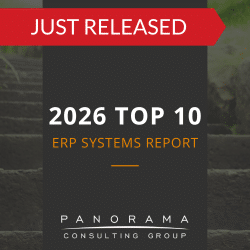While CRM systems have the potential to transform the way your business organizes and optimizes customer data, a successful CRM implementation is challenging. In fact, many CRM projects fall short of their goals. Just ask any of our computer software expert witnesses – they’ve seen it all.
Wondering why CRM projects fail at such an astounding rate? Ready to safeguard your project against such roadblocks? Today, we’re sharing a few of the top mistakes made by CRM project teams and how you can avoid them.
6 Reasons Why CRM Implementations Fail
1. Lack of Project Planning
As you evaluate vendors and analyze CRM system options, it’s easy to get starry-eyed over features and functionality. You might be tempted to jump straight into the implementation and skip the critical planning phase.
While it might seem that breezing through this stage will get you to the finish line quicker, it actually has the opposite effect. Failing to ensure your organization is fully ready to embrace new CRM workflows could mean starting a project you’re not prepared to see through to completion.
We recommend establishing a core project team to lead your efforts and help you take a more thoughtful, methodical approach. These team members can plan and manage every part of the project and communicate key updates to your workforce.
This ensures you have a cohesive, coherent CRM strategy and that every deliverable is tied to your project goals.
Contemplating litigation?
We have multiple software expert witnesses available for provision of reports, depositions, and testimonies.
2. Lack of Process Improvement
You aren’t implementing a CRM system to keep things exactly the way they are. Rather, you’re seeking improved workflows that will help you capture and capitalize on customer data in new ways.
Often, this means reengineering your existing business processes to:
• Make maximum use of your new system’s features
• Improve existing pain points
• Uncover new efficiencies
While today’s CRM software has more robust customer data insights than in the past, this fact alone does not increase organizations’ chances of achieving benefits. All the robust functionality in the world is useless without a plan for how to leverage it. This is why business process management is essential.
3. Lack of Organizational Change Management
Most CRM implementation challenges are related to change management issues.
For example, salespeople can be among the most change-resistant employees. A CRM implementation creates extra work and temporarily pulls them from their commission-generating activities.
An organizational change management plan is critical to mitigating this resistance as well as any other resistance from different groups throughout your organization.
4. Failing to Appoint Project Sponsors
Your CRM project must always have steam under it to stay afloat. This requires direct input and involvement from the C-suite, who must help keep the effort top of mind for all stakeholders.
In addition to executive sponsorship, there should also be advocates in every department. These are the individuals who will help communicate changes with their employees.
When the project is supported from the top down, it’s more likely to be backed by the funding, attention, and resources it needs to succeed.
5. Working in a Silo
A CRM implementation should be a company-wide initiative. You need more than just executive support; you need input and feedback from the people who will be using the system on a daily basis.
We recommend involving employees from every affected department, especially important to involve front-office employees. These employees work directly with customers, so they’re the ones best suited to discuss what’s working with the current setup and what isn’t.
6. Failing to Ensure Data Quality
You can’t achieve your project goals with poor data quality because your new CRM software is only as strong as the data you put into it.
Before you migrate your existing data into the new platform, make sure to thoroughly cleanse it. It might seem to be a laborious task, but mining through erroneous data later will be a much more time-consuming effort.
Consolidating multiple databases into one, comprehensive set of customer data requires careful thought and attention. Data cleansing applications can help with this effort, as can your ERP consulting company.
Tips for CRM Success
1. Consider Your IT Strategy
Your CRM implementation should be part of a comprehensive IT strategy. In other words, to avoid CRM implementation failure, consider how your CRM system will integrate with other systems now and in the future. This includes business intelligence, product lifecycle management, quality assurance, and other point solutions. Similarly, if you have any manufacturing software systems, it’s important to understand your CRM system’s system integration capabilities.
Simply because two systems integrate doesn’t mean they will integrate the way you want them to. We have found that certain product configuration details desired by some sales teams do not integrate well without extensive customization to a CRM system.
2. Remember That Your CRM System Doesn’t Need to Come From Your ERP Vendor
Many of our clients begin their software evaluation process with the expectation that one single vendor will provide most or all the functionality they need.
However, if CRM is critical to your business model and a source of competitive advantage, it may behoove you to consider a standalone CRM system to augment your core ERP software.
3. Don’t Bite Off More Than You Can Chew
Even though you’ll want to make a decision that’s best for your long-term goals, you don’t necessarily need to implement or even purchase various enterprise solutions all at once.
For example, one of our clients worked with us to select and implement a CRM system in a separate phase well before they began planning their ERP project. We were able to implement and integrate their chosen ERP system in a later phase because we had previously helped them define a long-term IT strategy.
Learning from Other Companies’ Mistakes
There are many reasons why CRM implementations fail, but all are avoidable if you plan ahead, assign the right resources, and keep your project goals at the forefront.
As experienced CRM and ERP consultants, we can help you achieve CRM success. Contact us below for a free ERP consultation.














